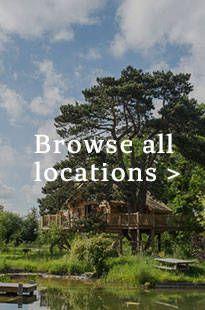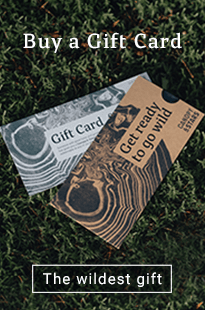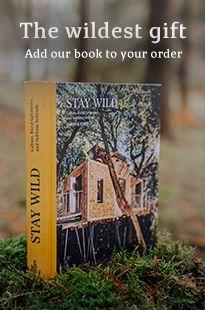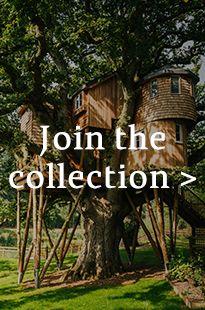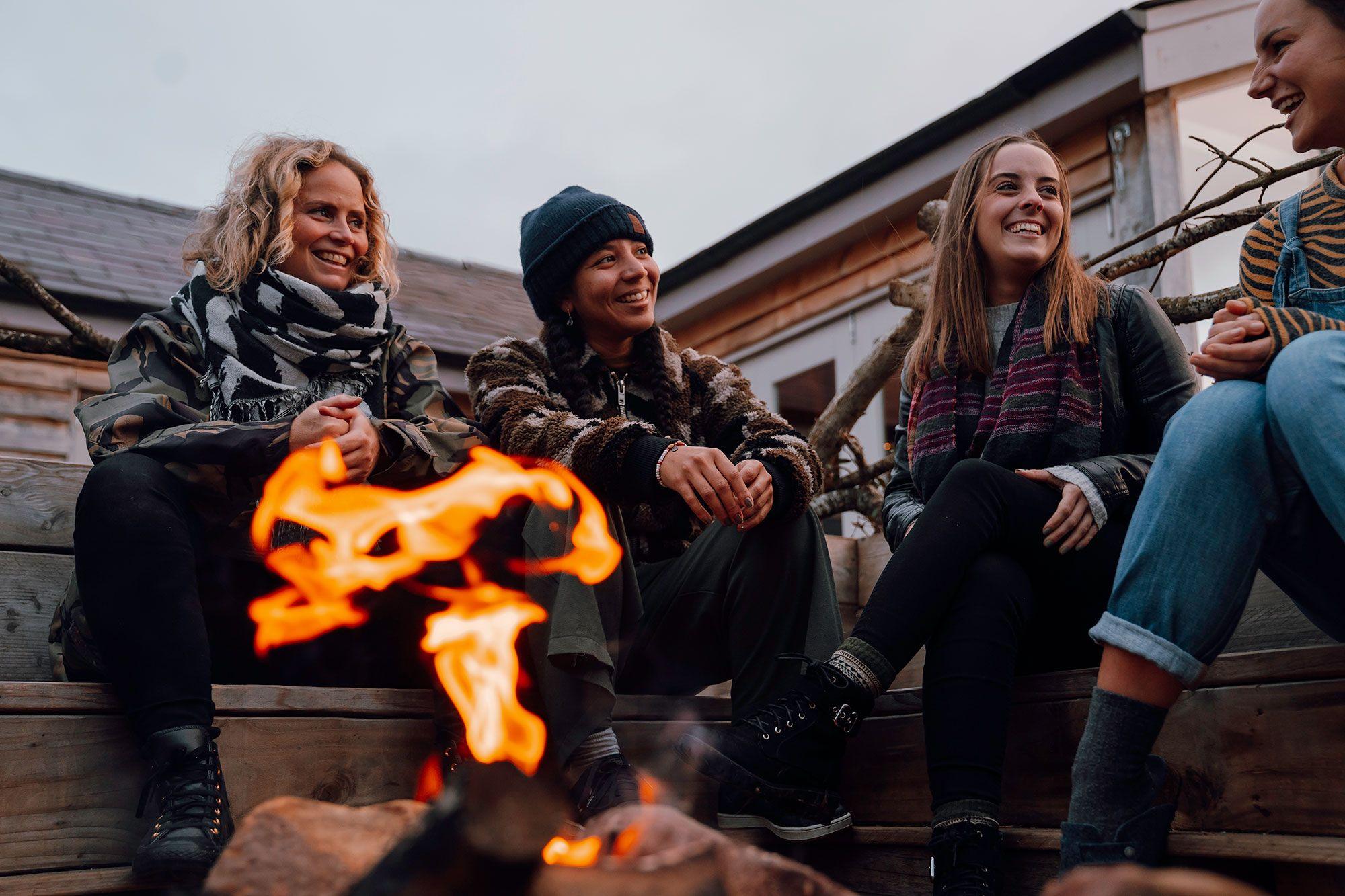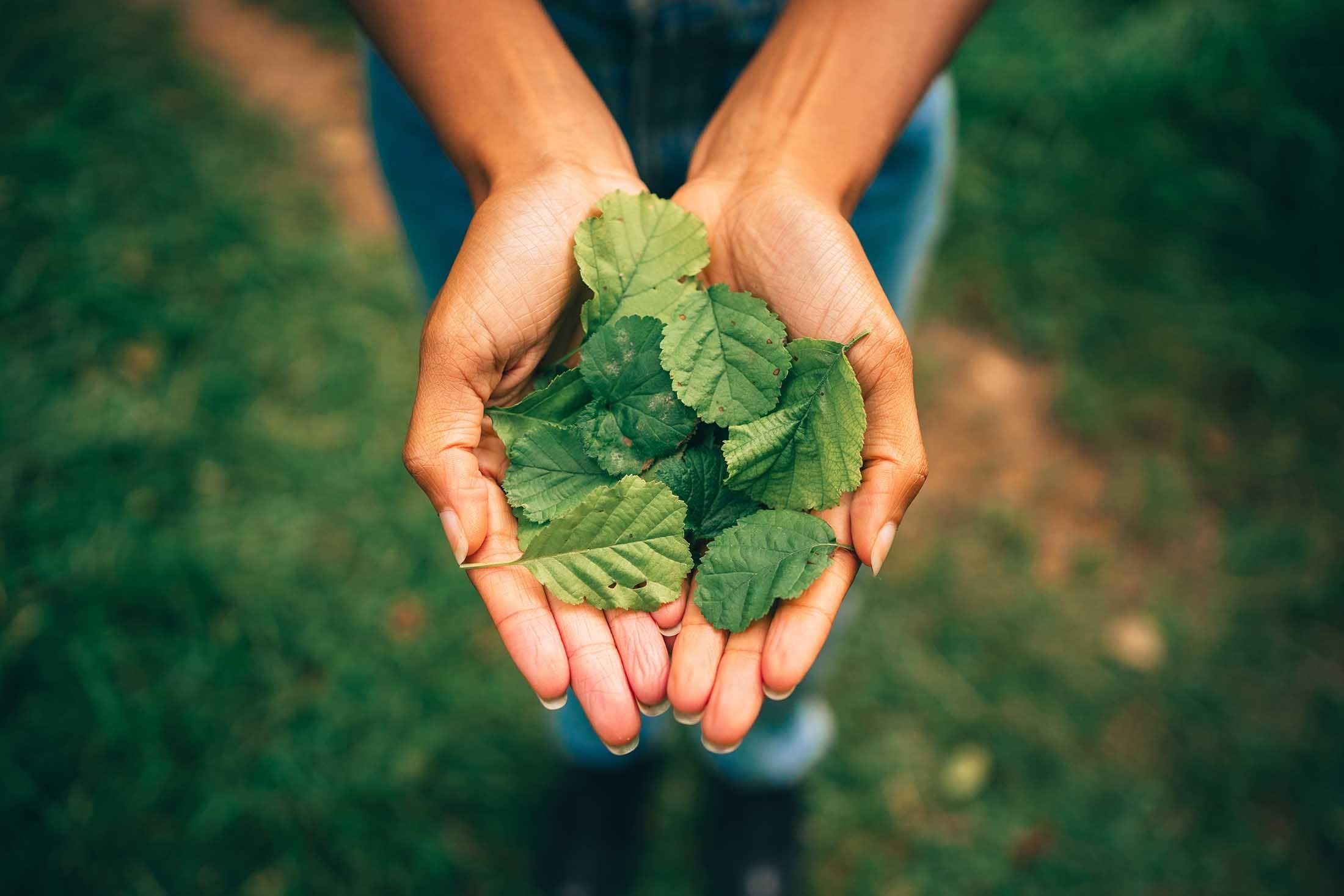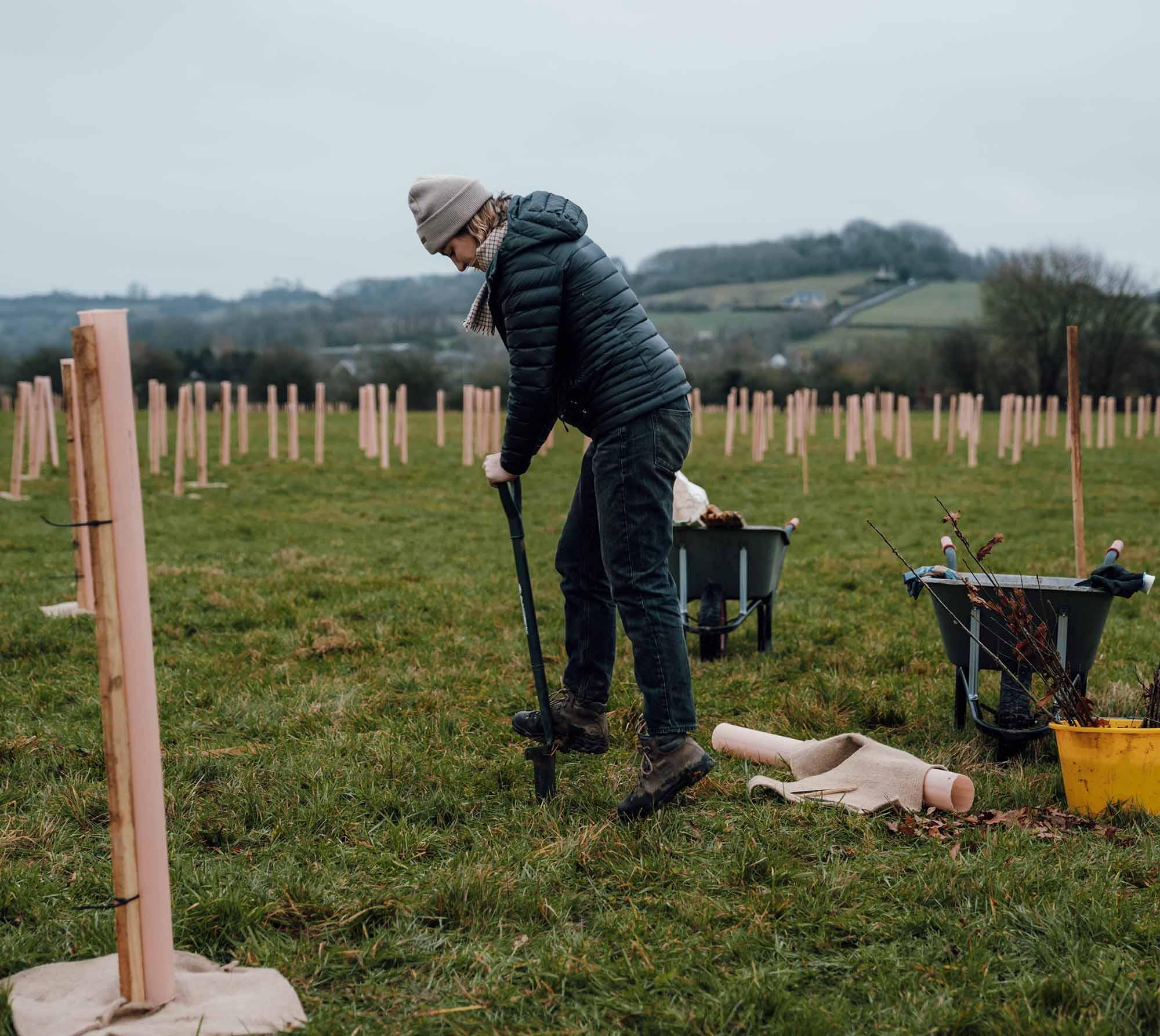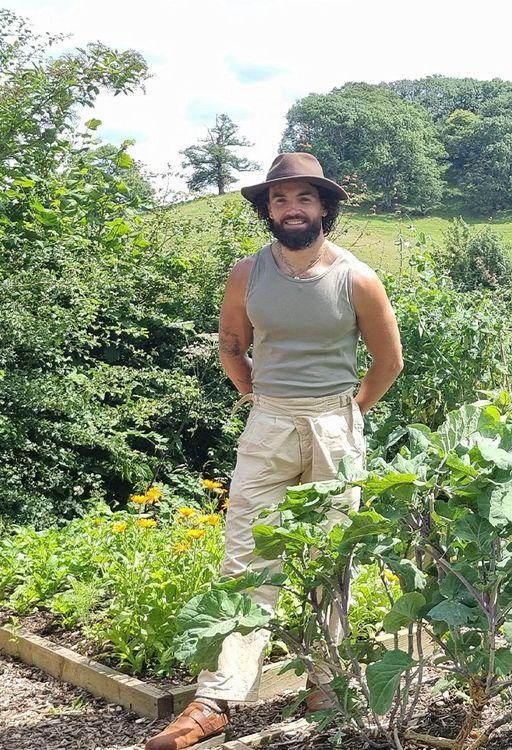
A Life More Wild – Series 4, Episode 8
Gaz Oakley
Gaz Oakley on going from protein loading to plant-based champion
Gaz Oakley was a fitness fanatic with the diet of a bodybuilder, but when loading up on carbs and protein started to make him feel unwell, he went looking for an alternative, and so began his journey to becoming one of the most prominent exponents of plant-based eating.
Yeah, I think every garden, every kitchen garden, needs to have a facility that you can cook on right away, because, you know, you want to harness the freshness of the ingredients. I think that's actually another way in which my cooking is developed over the years, is you want to actually cook in the area and the environment that you've actually harvested the food.
Join Gaz now on his farm in Wales as he talks about the connection that comes from growing his own food, problems with escaping chickens, and the naming choice he deeply regrets.
All right, welcome to Wales. I'm Gaz Oakley. Welcome to my little vegetable garden, in the beautiful countryside. I'm a chef originally, turned YouTuber and, and grower of, of my food, and it's a joy to have you here today. I’m gonna show you around. So I'm just on the border between England and Wales. I'm just, just inside Wales, enough to make me happy. Any any closer to the border, I don't think I would be at peace enough, if I'm honest with you.
And I'm proud to really proud to be from Wales and showcase what my country has to offer to my audience on YouTube, through my videos that I make, and the content that I put out there, and that means the world to me, because we're a small country, and I think often we get we don't get the love and the sort of, we're not showcased as enough, as I think we should do, because we're a proud, beautiful country with so much to offer to the world. So, if I can do my little bit online, I will.
Yeah, so I'm, I'm a city boy. Really. I grew up in in the city, in Cardiff. I then moved to London and, and I think deep down, I was really always searching for something. The city didn't fulfill me. It was nice having friends around, but there was something I was always craving, and now to find myself in the middle of nature here in the sheep, you know, they do make a bit of a racket, actually, but that's difficult Wales. But it feels right for me now. It feels right to be out in nature. And I think within, within us, all humans, really, we have that desire, and I think a lot of the time nowadays, where a lot of us are searching for something, and often we get led down the wrong path because of that search and that urge to find, find something in life that gives us purpose. A lot of the time it's just reconnecting with, with the land, and reconnecting with Earth, after all, when we're not really made to be living in cities. I've learned that since escaping and leaving the cities, but it is nice every now and then to dip my toes in and visit friends and go to nice restaurants. But coming back to nature, getting my hands in the soil and my feet on the ground, it makes me, gives me a lot of mindfulness and peace, and it's been so healing for my mind, not always having the strongest sort of mental health, I guess, and now I feel on top of the world thanks to it. And I think I often say to people, ‘How great do you feel after a day at the beach when you go on holiday?’ And for me, that's down to being in the natural environment of the seaside and having your feet on the ground connected to the earth, that is some of the best medicine you will find, in my opinion.
After leaving the professional kitchens, I had a lot more spare time on my hands, you know, going from 80 hour weeks and to then just having a normal job. Whilst I was recovering from that industry, I got back into sort of health and fitness. So, I grew up playing all manner of sports. That was my joy as a kid, from doing triathlons at age 11 and 12, and swimming so much, and running, and rugby and football, and boxing, and I'm so grateful to my parents for sort of put me into all of those sports and after school activities. And my dad actually coached the rugby team from the age of six, and that was such a blessing, and taught me so many life skills, actually. But getting back into sports and an exercise after leaving the in the cooking industry and in the kitchens I had, I was on this quest for healthy lifestyle, and I was eating what I thought was a half focused meal plan, of sort of very typical bodybuilders diet, going to the gym every day. You want a bulk up. You want to eat a lot of protein, carbohydrates. And it was very boring and samey, samey, or pretty much four or five times a day, wasn't, wasn't good. And actually, I started having some sort of gut issues it felt. And I was on a bit of a mission to sort of feel as good as I thought I looked at the time. You know, I was going to the gym and exercising every day, and I wanted to, I wanted to feel good on the inside, and I wasn't at the time. So I started exploring and looking on, online for, for an answer, really, as you do. And I started seeing lots of information out there about a plant-based diet. So I thought, I'll just give it a go. So I'll give my body a little detox that I felt it needed some somehow, and I thought, I'll give it two weeks. And after two weeks, I felt amazing. I felt like, so much energy. I felt this release. The gut issues seemed to have gone, and I felt lighter on my, my toes, and I felt energized. So I just continued on with it. And then my friends and family started, maybe a little concerned, what are you eating? I can't believe you've gone from this, you know, huge, colossal diet, yeah, to now just eating plants and weird kind of beans and chickpeas and whatnot and stuff like that. So I thought, right, what I'll do is, I'll just share my meals on Instagram. And started taking photos of my food. At first it was just my iPhone photos and uploading them. And then I was like, ‘Oh, actually, this is giving the bug back for cooking’. I started getting really passionate about cooking again, and it was a joy, because I because in that that moment between leaving the kitchens and just doing a normal nine to five job, I felt I could lost my purpose and my identity in life. I didn't know where I was going. And then finally, reigniting the passion for cooking through this new lifestyle and new, and a ton load of ingredients, new ingredients to play around with, was exciting for me, so I started taking it more seriously and started taking proper photos and styling the food photography, and that was really fun for me. And before I knew it, people from all around the world started following this Instagram page that I just set up for my friends and family to, to view, and that that was the start of it, and I was trying to think of a name for this page, because at the time, I didn't necessarily want to be the face of it. And I remember one of my first head chefs, as I was plating up in the kitchens, kind of as a joke. He would whisper in my ear as I was plating up this really sophisticated meal, he'd say, ‘That's avant garde chef. That's avant garde.’ And I just thought, I'll just use that as a name. I regret it now. I hate that name whenever, whenever mentions that, it makes me cringe a little bit. So now we've dropped that. I just want to put that out there. You can't find Avant Garde Vegan and you just find my name, Gaz Oakley. But it wasn't the thought of me doing futuristic or cutting-edge food. I guess it probably was at the time, and some of the dishes I was doing weren't, not that popular. It was exciting, but really it was just because my old head chef would say that in my ears I was plating up.
So this is my bed full of onions, here. I was trying to grow enough onions, like I did garlic last year so that I don't have to ever go and buy any onions or garlic, because I think it's criminal to do that, when they're so easy to grow. So I think I've got about 50 onions in this bed, and I've got more up there. And the good thing about onions as well is that, you know, before they're ready to harvest, you can harvest the green leaves and just use those like you would scallions or spring onions, which I have on my right here, and I've got loads actually growing, as you can see in that bed. Reason being, I went to Jamaica this I've been there quite a lot recently. It's one of my favorite places in the world, and scallions are so essential in their cuisine, as a base to most dishes and as sort of an aromatic note that they give a lot of their dishes. So trying to grow as many scallions as I can. So got tons actually in the ground coming up, and I've been harvesting these ones, and they're so fresh and vibrant compared to the supermarket ones. You realize, and actually you realize how much of a kind of a monopoly the supermarkets have on us, when you realize how easy and cost effective, they are to grow and how much footprint they take up. They don't take much room up in the beds, either. And as I go around, you'll see you've got loads of like, sage growing. And again, it's, it's to invite the pollinators in. It's to get those scents and those smells, and having herbs growing around the garden is so good because, you know, you can add a little bit of flavor to a dish last minute. Often people think that plant-based eating is often bland. I mean, it can be, if I'm honest. You some restaurants I go to, they do give it a bad name, unfortunately. But I think when you've got the aromatics of herbs around constantly at your disposal, that's why I always tell people to have a broad dried herb and spice rack or draw in your kitchen. But for me, I'm just trying to grow as many as I can, so I can throw in the last minute bit of sage or coriander or parsley or dill or whatnot, and it just brings a dish to life, like in Jamaica, where they add a bit of thyme to the end of every dish because it has that aromaticness.
Harvest this cucumber, I think, look at that, and the little you just scrape off the prickly bits we don't, which you don't see in the supermarkets, but I think that's a sort of a, I would call, maybe a deterrent from, from pests, actually, that's naturally built into organic cucumbers that you don't see at the supermarkets, but it's a little prickly, but so juicy and, and refreshing. We'll taste that in a bit. It's so, so amazing picking this is like the fruits of my labor. Yeah, this. They're everywhere, really.
Yeah, so the atmosphere in the greenhouse is, is not dry. You don't want to dry heat and to achieve a bit more of a humid feel. It's about watering often, and not just watering the plants and, and the soil. It's about water in the pathways too, because as it gets warm in here, that evaporates and just gives the plant that humidity and that, that less of a dry heat that it that it needs.
So, tomatoes are thriving. I've got a vast variety of tomatoes this year, from black, they call them strawberry tomatoes, which are almost purple, in fact. I've got some incredible Berkeley tie dye tomatoes which are down the back, that are just on the cusp of going orange, because they don't go fully red. And some purple ones in the corner, which look great. And then just your general eating sweet red tomatoes. Well, I'm living off tomatoes at the minute, which is great. In here as well, chilies I love so much, and aubergine and lemongrass. The beauty of having a greenhouse and undercover growing space is that you can grow some more exotic plants you wouldn't expect to grow in Wales.
Should we go meet the chickens?
Chickens?
Yeah, so these chickens, are nice little companions in the garden. I think that the more I'm learning about growing food in like a permaculture, and I think it's nice to have some animal companions. Not only do they reap the benefits of having a beautiful place to live, but they get scraps from the garden, which then they eat and poo out. And then you can use that poo as fertile manure on, on your, your beds. I'm yet to do that because I've only had these chickens for about a year now. So they're, they're sort of bedding, and the poop is on the compost heap now, and I think that that's going to create really rich compost. But these were adopted, these little chickens. They were egg laying hens, and after 18 months in that industry, they're thought to be, or deemed to be, not very profitable, unfortunately. So, they're sent away. So, there's a lovely charity that collects them and finds homes for them. So that's where I got them from, and I would like to get some more in the near future.
They can be annoying when they escape and try and dig up my garden, but they are joy to have, and just hearing their little, the little sounds they make is great, but when I have my big plot of land, that's something I would really love to do, is, is, is have, sort of rescue animals on site, whether it's cows or goats or ducks or chickens, you know, just utilize the space to make, give them a better life, and also to help out as well, because you we can work together in harmony, which is a nice thing to do so.
There's nice views of Wales here from here, nice green rolling hills. I think that's the benefit of being on a hill, is that you get good views. But for growing food, it can be difficult, but you've got to take the positives from everything. So being on the hill, you know, it's almost like a solar panel. You would never put a solar panel flat. You sort of direct it towards the sun, and that's what kind of this hill is doing.
In this little chicken area, planted some lavender as well, because that calms them just like it calms us humans, apparently. So, I put that in there and got bay leaves and a few smaller fruit trees, like apples, and we had some, I had some cherries. These were all young trees. So, you know, the next owners of this land will benefit from those fruit trees. And I think that's what it usually is the case anyway. So I think that's when I'm looking for my next place to live. I will be looking, there benefit for me if they have apple trees or fruit trees in the garden, rather than extra bathrooms and bedrooms, if I'm honest, because I know that I can free food, then.
let's get These chickens back in. Chickies!
There you go. Oh.
Yeah, definitely, I've seen the importance of growing food, and not only from the physical effects on the nutrients that I'm getting, but also the mental benefits of growing like I mentioned before. And it's, it's, it's made me realize, why on earth am I not being taught this in school. Why wasn't I shown how to grow food, or why wasn't this knowledge passed down from my parents? Where was it lost? So now it is my mission to encourage as many people as I can through my videos to reap the benefits of growing food for all of the reasons that I mentioned. Because, you know, we are lucky in the UK a lot of time, unless you're living right in the center of cities, you, we do have some outdoor spaces that we can we can grow food in, and you don't need a lot of land. I wish I started growing food on my balcony in London. I had enough room to grow a few pots of things, but there's loads of community spaces, allotments. They're not expensive to, to get hold of. It's just getting them in the first place is hard, but the more people get into growing food, the more of these community projects are going to be about. So it's about encouraging the next generation to do it and feel the benefits that I've got too from it.
I Think the future of the sort of food industry, in terms of feeding ourselves and nourishing ourselves, I think that, you know, in an ideal world, people would be a bit more in tune with the seasons, and have the time to sow at least one food that they like to enjoy. And I often say, you know, if you eat a lot of kale or you eat a lot of salad, then just have one or two plant pots on your windowsill in your garden. It's easy. If you've got house plants in your house, and you look after them, okay, then you can look after a vegetable plant. What's the difference? It's just a vegetable plant actually gives you something to something to eat, which is great. But on a bigger scale, I think one of my inspirations, another Welsh gardener, Hugh Richard, mentioned the other day that, why is organic food called organic food, and why is it more expensive? Why can't just vegetables just be organic, you know? And, and that's the thing that really winds me up. We're so disconnected, and I was so disconnected to having strawberries in the middle of winter isn't something we would do and isn't something that we should be able to do. We shouldn't be having them shipped over from another, another part of the world.
And often, you know, to get them to a state of, of harvest ability, harvest-ability, they would have been sprayed with something, and to keep them away from, keep pests away from, and to grow a mono crop, you know, you have to protect them using harmful pesticides. So I think if we can detach from that, and I think the best way to detach from that, if you can't grow your own, is to visit your local farm or, you know, join a community garden or a farm shop, organic farm shop, shop there. I may be losing out on a lot of brand deals here with the supermarkets, but I don't care.
But I think actually, you know, maybe the supermarkets will have to make a change soon, because we're going to be demanding this stuff. Why? Why is organic food more expensive? Or, you know, packaging that this food comes in is a night… is terrible too. Like most plants come with their own packaging. You don't need to add anything on top of it. So I think we've got used to this level of accessibility and just convenience that we've just forgotten. Why not? So did I? Even when I was in the kitchens, you know, asparagus would come in the height of the season, I'd be like, ‘Oh, that's cool’, But I wouldn't think about the patience and the time and the effort that's gone into growing it. Now I really value it, so I think if I can encourage people to, even if you haven't grown it, if you're getting some lovely, delicious in-season produce, think about the effort that's gone into growing it, and you're only going to cook better with it. Is that you're only going to want to use every sort of part of that plant and make food with love, and it's going to nourish you, you more. I think food cooked with love, has it as an impact on your energy. I think, you know, if you go into a, if you go into a fast-food restaurant, and often the employees there, they don't want to be there. And, you know, throwing these meals together, it's not cooked with love. And I think that that's only going to make you feel a bit crappy, if I'm honest with you. So, I think that's why Nan's food always tastes so good, because it's cooked with love and passion. So, if you cook with passion and love too, you're bound to make delicious, tastier food.
Hopefully Gaz has got you eyeing up all your windowsill's growing space and making your non-edible parts a little bit worried for their future. Start small with some simple salad leaves or herbs. Who knows you could end up being the next great Avacadvocate for plant-based living? Sorry, I couldn't resist that one.
Next time you'll be walking in the company of a woman who's trekked the mountains of Scotland, India and Iran, on a mission to highlight the forgotten female adventurers who went before her. We'll join Lisa Wortley on a training hike in the Cairngorms, as she prepares to climb Mont Blanc on the trail and in the 19th century, clothing of Henriette Dodgeville, the first woman to scale the mountain unaided.
Keep track of all Gaz’s work on his Instagram and follow us on ours to see behind the scenes footage from recordings and a few extra questions we asked each guest.
A Life More Wild is an 18Sixty production, brought to you by Canopy & Stars. Production by Clarissa Maycock. Our theme music is by Billie Marten.

